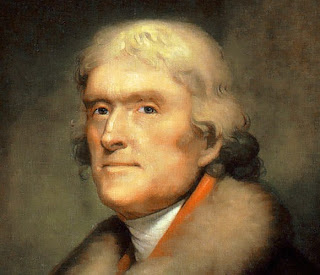
Patriots Day commemorates the battle of Lexington and Concord which were fought on April 19, 1775. Part of the history of this famous revolutionary battle was the midnight ride of Paul Revere and William Dawes. The Sons of the American Revolution in Massachusetts were largely responsible for the official recognition of the event.
Historical Setting:
Massachusetts Colony was a hotbed of sedition in the spring of 1775. Preparations for conflict with the Royal authority had been underway throughout the winter with the production of arms and munitions, the training of militia (including the minutemen), and the organization of defenses. In April, General Thomas Gage, military governor of Massachusetts decided to counter these moves by sending a force out of Boston to confiscate weapons stored in the village of Concord and capture patriot leaders Samuel Adams and John Hancock reported to be staying in the village of Lexington.
The atmosphere was tense, word of General Gage's intentions spread through Boston prompting the patriots to set up a messaging system to alert the countryside of any advance of British troops. Paul Revere arranged for a signal to be sent by lantern from the steeple of North Church - one if by land, two if by sea. On the night of April 18, 1775 the lantern's alarm sent Revere, William Dawes and other riders on the road to spread the news. The messengers cried out the alarm, awakening every house, warning of the British column making its way towards Lexington. In the rider's wake there erupted the peeling of church bells, the beating of drums and the roar of gun shots - all announcing the danger and calling the local militias to action.
In the predawn light of April 19, the beating drums and peeling bells summoned between 50 and 70 militiamen to the town green at Lexington. As they lined up in battle formation the distant sound of marching feet and shouted orders alerted them of the Redcoats' approach. Soon the British column emerged through the morning fog and the confrontation that would launch a nation began ...
Patriots Day is commemorated each year in Massachusetts and Maine with dramatic battle re-enactments, parades and ceremonies. Among the better-known commemorative events on Patriots Day is the Boston Marathon, which has been run now for over a century.
Patriots Day is a public holiday in Massachusetts and Maine, celebrated on the Monday nearest that date. All Massachusetts state, county and town government offices and many local businesses close, though federal government offices, post offices, and offices of large interstate and international companies remain open.
The re-enactment of the battle on Lexington Green starts at dawn (6 am), but crowds of spectators begin to gather several hours before. Before 6 am you will hear the redcoats marching along Battle Road as they approach Lexington Green.
“…these reenactments are always heartfelt and often poignant. None more so than the reenactment of the Battle at Lexington Green. Hundreds of people gathered on the green hours before dawn, despite the bitter cold ... Just as the sun barely started to cut through the historically inaccurate fog, the British regulars marched into the square and giddy anticipation turned quiet and somber. Within twenty minutes eight men representing our first fallen veterans were laying on the grounds while the regulars regrouped and marched off to the beat of drummers. As the announcer called the names of the fallen minutemen, their proxies stood and were escorted to the burial grounds for a moving memorial ceremony.”
Patriots Day events in nearby Concord include a mid-morning parade with lots of fife-and-drum bands and groups of Minutemen from surrounding towns is followed by ceremonies at Old North Bridge and the repeated firing of two brass cannons. Several church halls open to provide pancake breakfasts to the multitude.
May we remember our brave ancestors who sacrificed in so great a cause, to bring about our national independence and liberty.
__________________________________
Sources:
Historical Setting: http://www.eyewitnesstohistory.com/pflexington.htm
Quote & Photo: http://igallo.blogspot.com/2009/04/patriots-day-weekend.html











